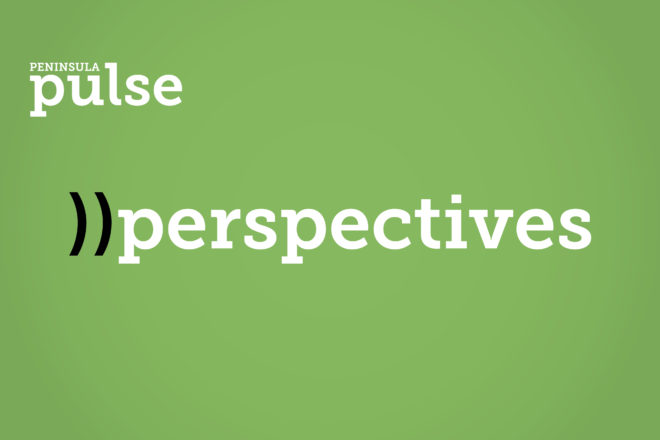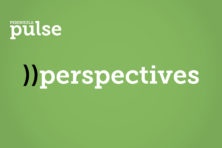Pulse of Philanthropy: When Free Markets Fail
- Share
- Tweet
- Pin
- Share

by BRET BICOY, President and CEO, Door County Community Foundation
People are often surprised when they hear me say that a market-based solution to a problem is usually the best one, and I suppose I can understand their surprise.
From the first recycling drive that I helped to organize in the third grade to my current role at the Door County Community Foundation, I’ve spent nearly all my life volunteering and working for charitable organizations. Heck, one of the strategic goals of the Community Foundation is to be our community’s most articulate advocate for charitable giving, and I even write this column about philanthropy for the Peninsula Pulse.
Thus, it’s easy to understand why most folks assume that I think private philanthropy should be the first – and usually is the best – response to a societal problem. In fact, what I actually believe is almost exactly the opposite: that our initial response to any of society’s challenges should be to first see whether the free market can come up with a solution.
Here’s an example. Before modern building techniques and flame-retardant materials became commonplace, many people died while they were asleep in their homes when a fire broke out and smoke overwhelmed them. An engineer in the 1960s set out to design the first practical home smoke detector, and in doing so, gave our world one of the great safety innovations of the last century. This entrepreneur saved countless lives – and probably became very wealthy in the process.
An effective, market-based solution offers the promise of a financial benefit to the one who can solve the problem, thereby incentivizing private individuals and companies to search for answers. Smoke detectors are so enormously effective at saving lives that people were willing to pay for them. Then, as more detectors were sold – thus lowering the price of individual units – they became affordable for more people.
Yet perhaps the greatest aspect of successful market-based solutions to societal problems is that they are inherently sustainable. If people are making a profit producing smoke detectors, they have a strong financial incentive to keep doing so. Smoke detectors have become so impactful and so inexpensive that they are now ubiquitous. Although nothing lasts forever, an effective free-market solution can create an unmatched level of sustainability.
Unfortunately, there are plenty of areas in our economy where the free market fails. For instance, there is simply no profit to be made in helping a woman escape an abusive husband. Nor is there any revenue to be earned from an out-of-work father who cannot afford to buy groceries for his family. That’s why we need human-service charities such as domestic-violence shelters and food pantries. If there were money to be made from serving people who are experiencing situations like these, some smart entrepreneur would have figured it out by now. The vast majority of human-service organizations require outside subsidies to be sustainable, and the form of that subsidy is very often a charitable gift.
However, it’s not just in human-service organizations where the market fails. There are many charities that have earned income, but that revenue is insufficient to meet their expenses. For instance, the Travel Channel regularly publishes a list of the 15 best performing-arts centers around the country outside of Broadway, and the websites of these centers have two things in common: There’s a button where you can buy tickets, and usually right nearby is another button asking for a donation. They all need private philanthropic support to be able to put on the performances that we enjoy.
Similarly, although health care in America has become big business, there are places such as Door County where the economies of scale that lead to profitability simply do not exist. That’s why nearly six in 10 hospitals in the United States are still nonprofit.
These organizations are nonprofit precisely because there is no profit to be made. Often they have no earned income, or the revenue they do earn is insufficient to cover the true cost of offering their services. That makes them inherently unsustainable without the support of the community. In some cases, that subsidy comes from the government in the form of a service contract. In other situations, sustainability is achieved only when people like you and me choose to make a financial contribution to their work.
The search for effective, market-based solutions should always be our first priority because they are the only truly sustainable programs. However, when the market fails to provide an answer because there is no profit to be made, that’s where we need private philanthropy. For many charities, your generosity is their sustainability.
Contact Bret Bicoy at [email protected].



